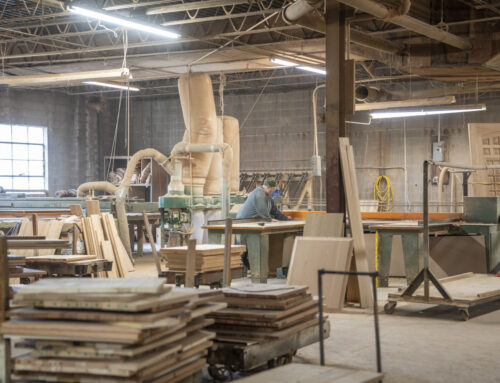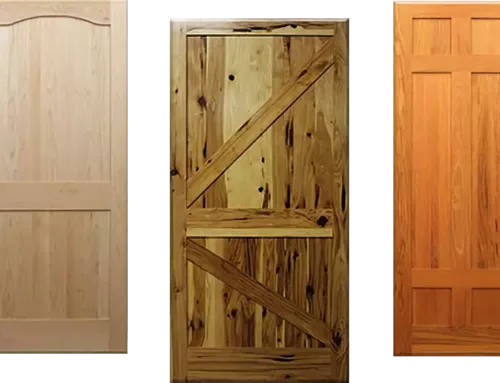Wood Hardness: The Janka Hardness Scale for Cherry, Cedar, Soft Maple & More
How wood hardness is measured…
Wood has long been known for its natural beauty and durability. Whether the stout oaken drawbridge on an ancient castle, the sturdy hickory handle of an axe, or the beauty of a cherry writing desk, wood continues to be unmatched in its versatility.
Here at Allegheny Wood Works, we pride ourselves in offering a huge selection of interior and exterior doors, made from 100% solid hardwood. Our doors are crafted from any of eighteen wood species, from ash to walnut. Given the number of options, questions are always asked. Is soft maple really soft? How hard is hard maple? How hard is hard? How should hardness affect my choice?
The industry standard for measuring the hardness of wood is known as the Janka Hardness Test. The test measures the amount of force (in pounds) required to push a steel ball with a diameter of 11.28mm (.44”) into the wood to a depth of half of the ball’s diameter. The chart below shows the hardness of the wood species offered by Allegheny Wood Works. There are many variations of the species listed, including stain grade, paint grade, rustic, and curly. These variations are not listed, since a variation of the specie typically does not affect the hardness. For example, Rustic hickory has the same hardness as clear hickory.
|
Specie
|
Janka Hardness
|
|
Brazillian Cherry (Jatoba)
|
2,690
|
|
Hickory (Calico)
|
1,880
|
|
Hard Maple
|
1,450
|
|
Mahogany, Sapele
|
1,410
|
|
White Oak (Including Quartersawn White Oak)
|
1,350
|
|
Ash (White)
|
1,320
|
|
Red Oak (Including Quartersawn Red Oak)
|
1,220
|
|
Mahogany (African)
|
1,070
|
|
Walnut (Black)
|
1,010
|
|
Cherry (American)
|
950
|
|
Soft Maple
|
950
|
|
Birch (White)
|
910
|
|
Pacific Coast Maple
|
850
|
|
Cedar (Spanish)
|
600
|
|
Alder (Red)
|
590
|
|
Poplar
|
540
|
|
Cypress
|
510
|
|
Pine, Eastern White
|
380
|
Now that we have seen the hardness scale, you are probably wondering- what is the hardest wood on earth? That would be Quebracho, whose name translated means “axe breaker”. Weighing in with a hardness rating of 4570, this wood is used in heavy construction, including railroad ties and fence posts. At the other end of the scale is balsa. Coming in with a hardness rating of 90, balsa is the softest commercial wood, and is used for insulation, buoyancy, and some commercial applications.
When choosing a wood specie for doors, a number of factors must be considered. The hardness of wood directly affects the wood’s weight and resistance to water. While there are exceptions, the higher hardness rating, the more resistance to water, and the higher the weight. Also, with greater hardness comes a greater resistance to weathering and damage.
Personal preference is the main force when choosing interior doors. The color and characteristics of a given specie are generally the determining factor. Other factors include traffic through the doors, sound resistance, and durability. Harder woods have a heavier swing, resist scratches and dents, and dampen sound better.
For exterior applications, the best choices are white oak, mahogany, cypress, and Spanish cedar. White oak and mahogany are excellent choices due to their high resistance to water and decay. Cypress and Spanish cedar, while considerably softer, are less resistant to water, but are highly resistant to insects.
View Allegheny Wood Works species used in our solid hardwood doors.
Information in this article was derived from the following sources:



